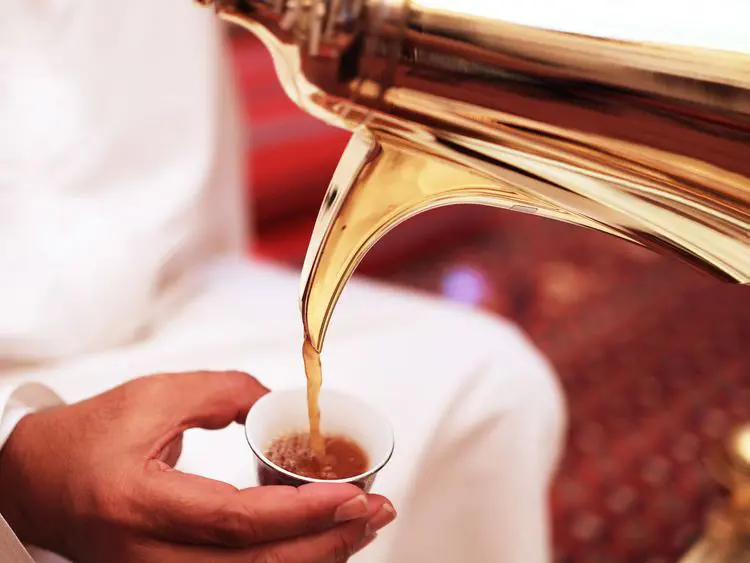“Picture this: you’re wandering through the bustling streets of the Arabian Peninsula, the scent of freshly roasted coffee beans wafting through the air. Suddenly, you hear a rhythmic tinkling sound coming from the nearby cafes. You follow the noise and are greeted by a group of locals pouring boiling water over finely ground coffee beans in a process known as Gahwa.
Intrigued, you ask yourself, ‘What is Gahwa?‘This traditional coffee, Qahwa, has been integral to Arabic culture for centuries. Not just a beverage but also a sign of hospitality, Gahwa is often served during weddings, religious ceremonies, and other social events. Its rich aroma, earthy flavor, and cultural significance have helped it gain prominence and spread its roots across the globe.
In this blog post, we’ll deeply dive into the world of Gahwa, its history, cultural significance, and the unique practices surrounding its preparation. So, grab a cup of coffee and join us on this exciting journey to discover the story behind one of the most cherished beverages in the world – Gahwa.”
What is Gahwa coffee?
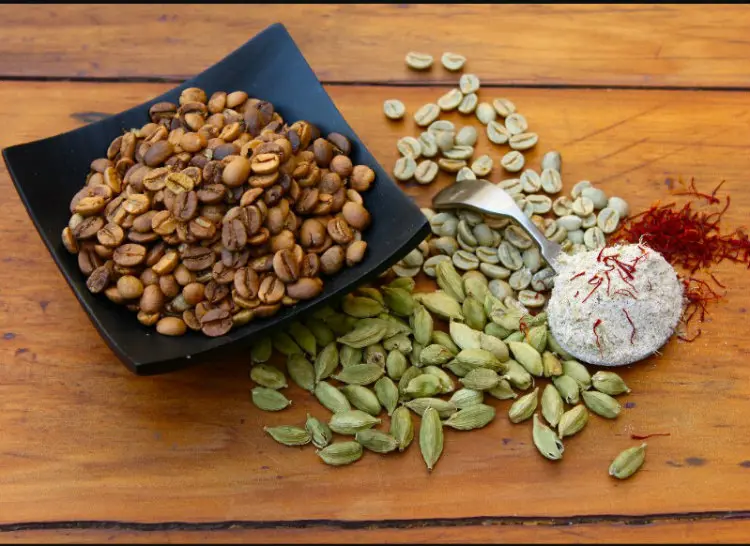
Are you aware that in several Arab-speaking countries, the popular coffee drink is called Gahweh? This stimulating beverage is generally prepared using Arabica coffee beans, contributing 80 percent to the world’s coffee production. Interestingly, the origins of Gahwa coffee date back to the Arabian shepherds who stumbled upon this elixir.
Legends have it that their goats became more alert and energetic after gnawing on some berries, which were later found to be coffee beans. Over time, the Arab people created a reviving drink from these beans, sustaining their energy levels throughout the day. So, what is Gahwa coffee? It is an excellent beverage with roots in the heart of Arabia.
How do you pronounce Gahwa?
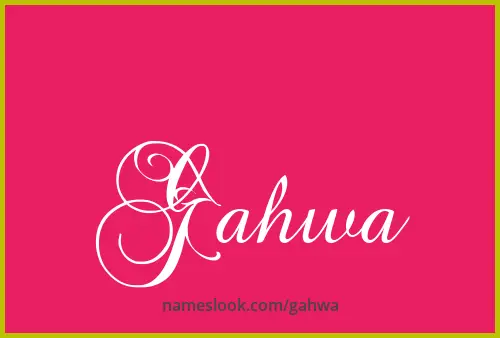
If you’re a coffee lover intrigued by exotic blends, you may be curious about trying Gahwa, a traditional and popular coffee drink from the Arabian peninsula. Despite its increasing global popularity, some may still wonder, “How do you pronounce Gahwa?” Well, the pronunciation varies depending on dialects and regions.
For example, in Egypt, it is often pronounced ‘Yahweh, which involves substituting the ‘QA’ with a glottal stop sound. In other Arab-speaking countries, it is pronounced as Yahweh. As for the recipe, Gahwa is brewed using Arabica coffee beans, which account for around 80 percent of the world’s coffee production. So, if you want to expand your coffee repertoire and try a new blend, why not give Gahwa a shot?
What does a Gahwa look like?
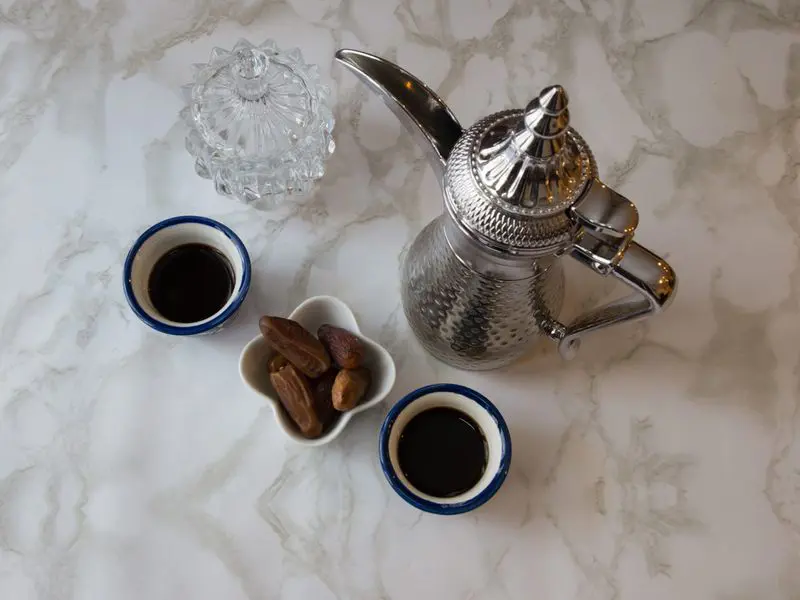
Once prepared, this traditional Arabic coffee is strained and poured into a dallah. But what exactly is a dallah? Imagine a tall and slender container with a spout, often adorned with intricate patterns and made from brass or silver. It’s the perfect vessel for serving Gahwa, which has a distinct scent and flavor profile. Taking a sip of Gahwa, you’ll immediately notice the notes of spices added during preparation.
This coffee departs from the usual creamy brew you may be accustomed to, but rest assured that Gahwa has its unique and enjoyable charm. By the way, if you’re curious about the size of a dollar or the appearance of Gahwa, take a quick peek at your Dh1 coin – you’ll spot the distinctive shape and style depicted there.
What is Gahwa Arabi?
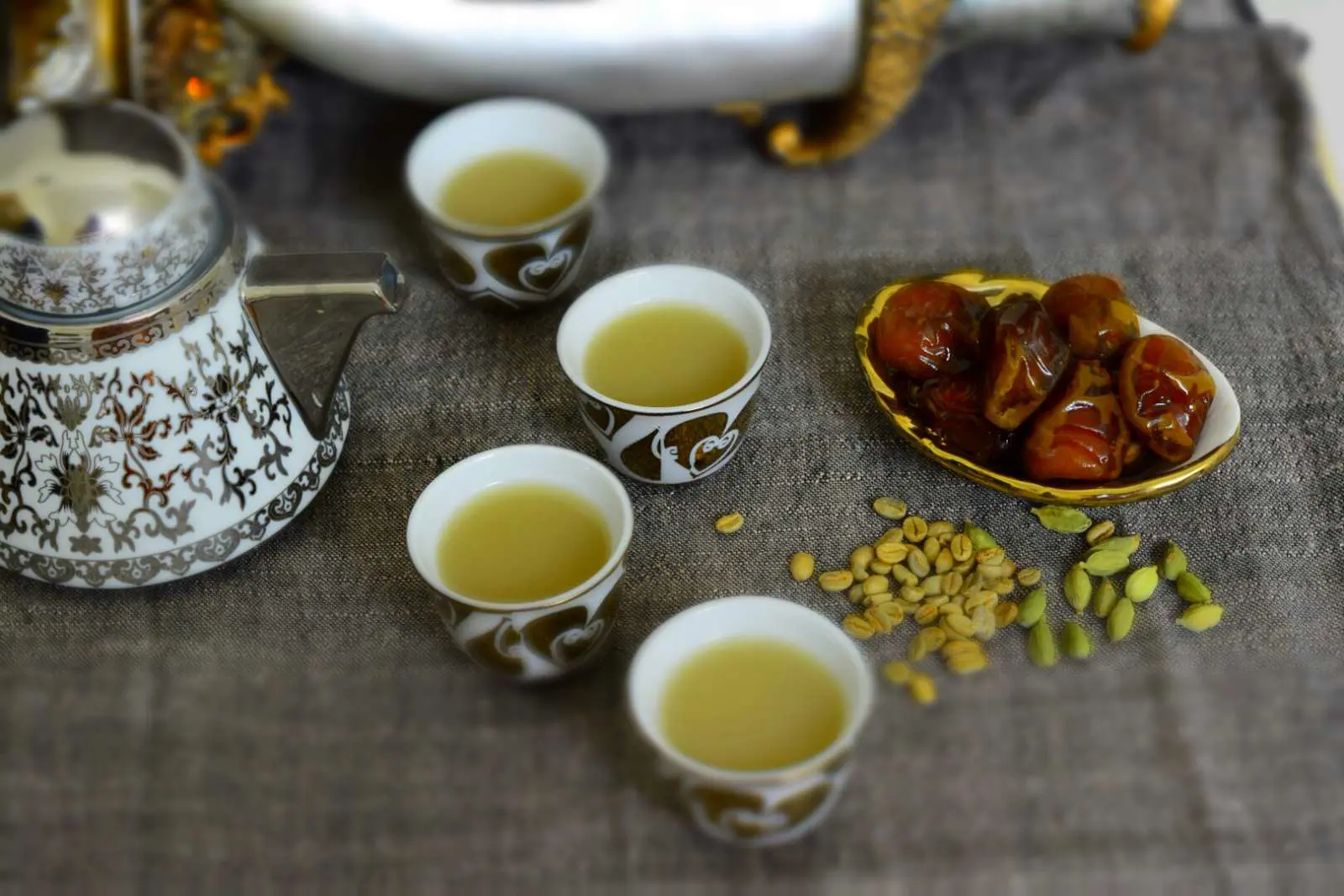
Well-known as Finjan Gahwa, Gahwa Arabi is a traditional Arabic coffee from the Arabian Peninsula. This stimulating beverage is often served in small cups without handles, perfect for sipping on slowly. Typically, Gahwa Arabi is enjoyed hot or warm and is traditionally filled with sweet dates, chocolate, or other treats to balance out its slightly bitter taste and spicy undertones.
The bold flavor of Gahwa Arabi comes from a carefully crafted blend of coffee beans and the addition of aromatic spices such as cloves, cardamom, and saffron, which impart both color and flavor to this beloved beverage. So now you know Gahwa Arabi is not just any cup of coffee but a flavorful and cherished part of Arabic culture.
What is Gahwa made of?
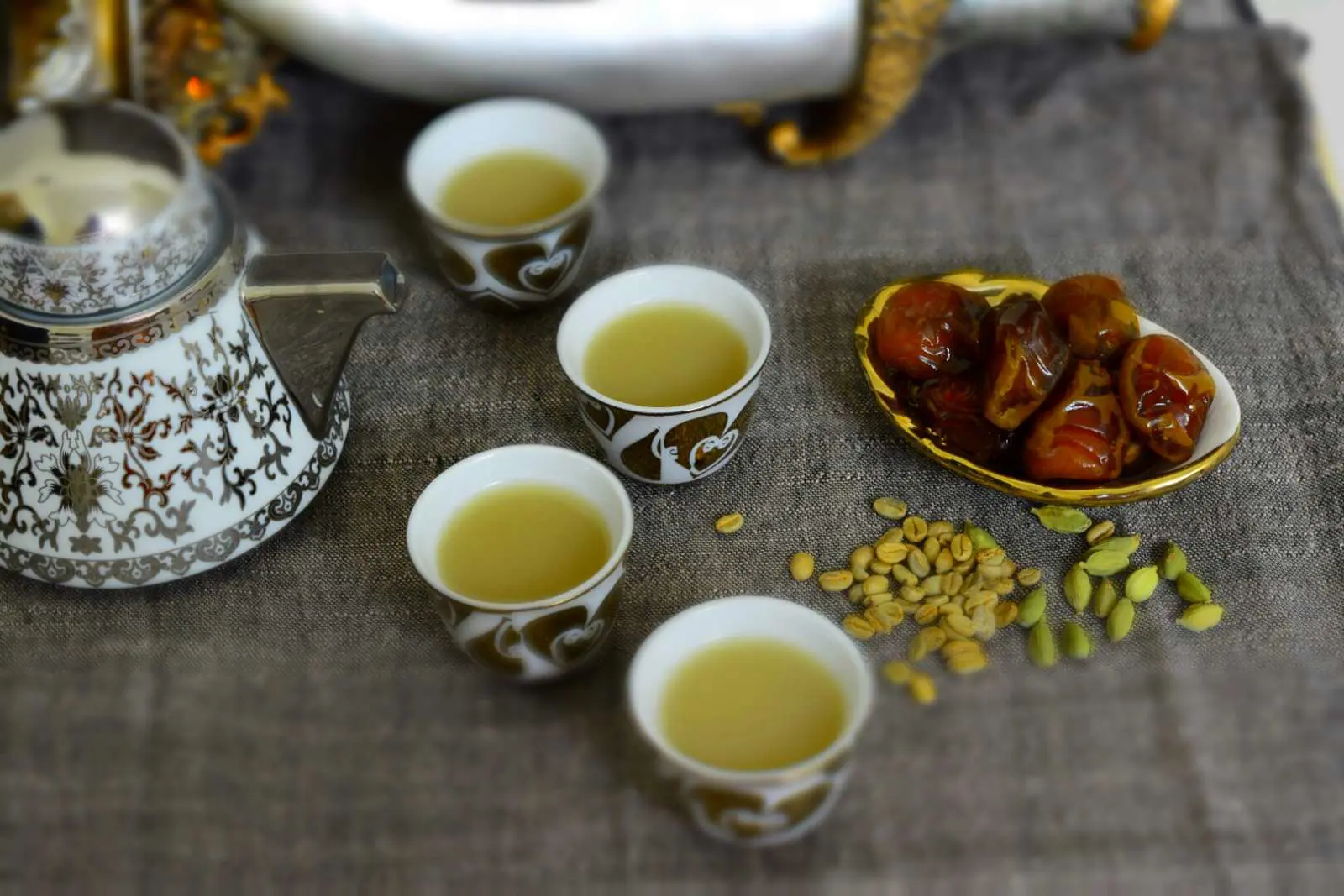
Have you ever wondered what goes into making a cup of Gahwa, otherwise known as Arabic coffee? Well, this delicious brew is made from carefully selected Arabica coffee beans that have been perfectly roasted. But that’s not all, as Gahwa is also infused with the warm, aromatic flavor of cardamom, which gives it its distinctive taste and aroma.
The coffee is then brewed in a traditional khumrah, a large pot specially designed to boil the water to precisely the right temperature for the perfect cup of coffee. And, if you’re lucky enough to try Gahwa traditionally, you’ll also get to sample some dried dates alongside your cup of coffee.
But before this can happen, the coffee beans must first be roasted over a hot fire using a mishmash, a special spoon designed to evenly roast the beans. So, there you have it: creating a cup of Gahwa is a labor of love, resulting in rich and flavorful coffee that millions worldwide enjoy.
What does Gahwa mean?
Arabic coffee
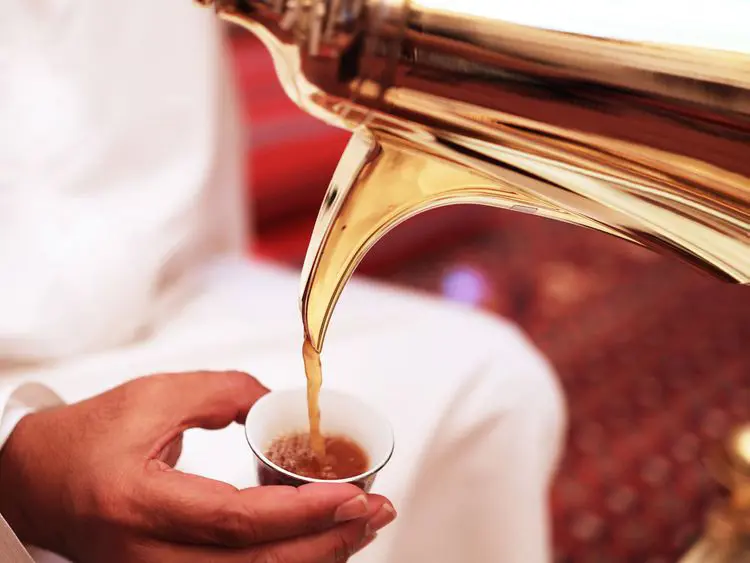
I want to dive deeper into the cultural significance of this aromatic drink. So let’s explore the question: “What does Gahwa mean?” Gahwa is an Arabic word that refers to coffee, which in the Emirati Arabic dialect is known as a symbol of hospitality and generosity. This drink has been central to Arab culture for centuries, reflecting their communities’ solid social bonds and traditions.
The preparation and serving of Gahwa are marked by elaborate rituals and customs that vary between regions. From the grinding of the beans to the brewing, the entire process is treated with the utmost care and attention to detail.
This coffee is often presented to guests in small cups called “finjan,” which symbolize the intimate and warm relationship between the host and guests. Overall, drinking Gahwa is not only a delicious experience but an integral aspect of Arab culture that speaks to the importance of community and hospitality.
What does Gahwa taste like?
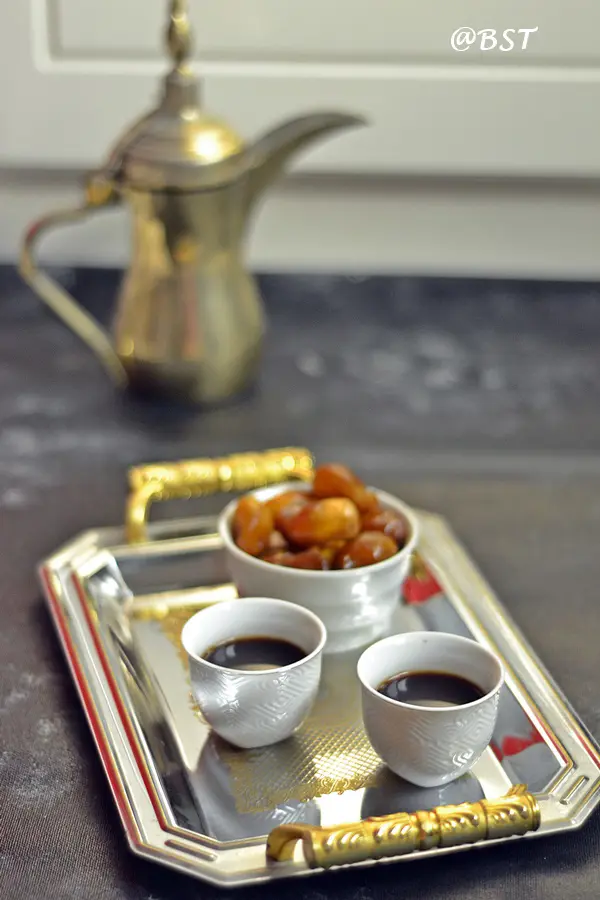
One of the most notable characteristics of gahwa is its mild bitterness, which adds a unique depth of flavor to this traditional beverage. To complement the offense, gahwa is typically served with sweet, chewy dates and candied fruit—the perfect balance of flavors.
However, Ogawa is more than just a tasty beverage. It symbolizes generosity and hospitality deeply ingrained in Middle Eastern culture. Serving gahwa before or after a meal shows generosity, welcomes guests, and creates a warm, inviting atmosphere. So, what does Gahwa taste like? It is a complex yet well-balanced combination of mild bitter notes and sweet accents, evoking warmth, comfort, and community.
Where is Gahwa from?
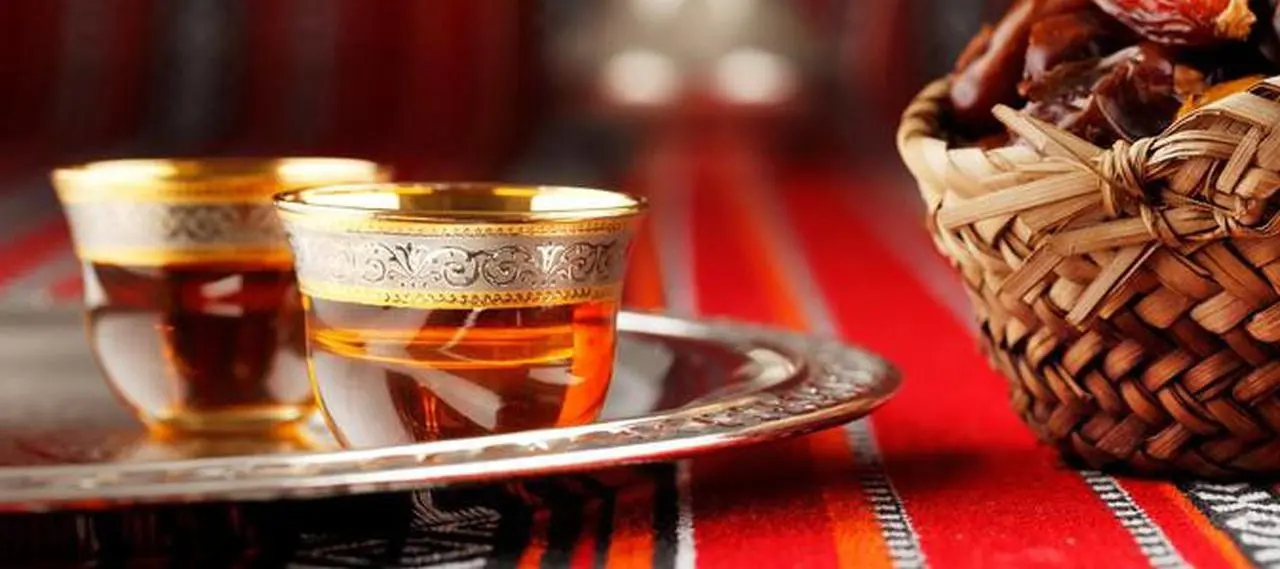
I take joy in exploring various cultures and the role that food plays in their hospitality. Within the Emirati community, their age-old welcome is symbolized by the aroma of the coffee, known as ‘gahwa’ in the UAE. Its infusion with flavors such as cardamom and rose water adds a unique twist to this popular beverage and evokes a sense of warmth from Abu Dhabi and its people.
Curious minds may ask, “Where is Gahwa from?” Despite its association with the UAE, the origins of gahwa still need to be determined. It is believed to have originated in Ethiopia and, over time, spread to Yemen and other Arab countries. Nevertheless, gahwa has become an integral aspect of Arabian culture and identity.
From its humble beginnings as a beverage used in traditional ceremonies to its widespread use in modern times as a symbol of generosity and hospitality, gahwa embodies the Emirati spirit of warmth, kindness, and friendliness.

